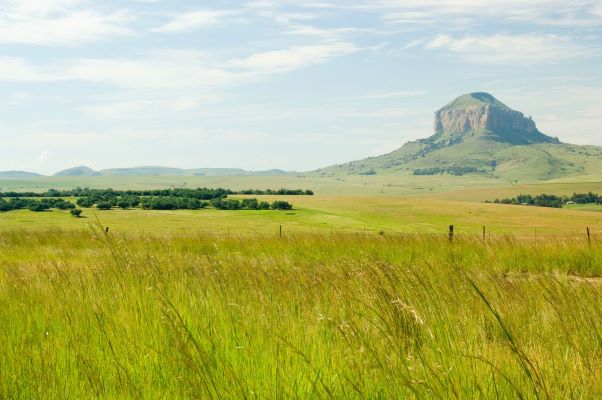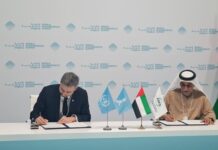Establishing renewable energy in Africa is one of the most impactful ways to increase prosperity and mitigate the climate crisis. However, overhauling technology in Africa requires complex consideration of its economic status and global alliances. Renewable energy could alleviate poverty and food scarcity worldwide, but what roadblocks must humanity overcome for it to become a reality for Africans?
Managing International Relationships
The Ukraine war sparked new international interest in Africa due to its resources. Countries previously reliant on Russian fossil fuels are looking elsewhere for oil and natural gas. However, these trends are causing distress to environmentalists worldwide, as an uptick in African fossil fuels could progress local economies in positive directions from tainted catalysts. Some Africans even feel it’s a contentious move to capitalize on global interest when renewable energy in Africa should be the push instead.
Poverty, environmental racism and hypocrisy line these conversations as rural Africans need the economic boon to accelerate the continent’s growth. However, the worldwide standard set forth by the United Nation’s Sustainable Development Goals and countries’ global legislations promotes renewable energy despite national circumstances.
For Africa to monetize fossil fuels now could incite negative global opinion and adverse environmental impact. Here is the expectation — in Africa, technology doesn’t have the time to go through the industrial steps the rest of the world went through. Despite the circumstances, the country must skip straight to renewables as fast as possible.
Negotiating Priorities to Fund Renewable Energy
Switching African technology to renewable energy is a complicated task in the modern world of international relations. So how can the continent obtain economic security, assist countries requesting deals and install renewable energy generation simultaneously?
African officials can leverage repeated meetings with global leaders to solidify investments in energy development. Rural citizens and workforces will need substantial resources to make a widespread change, including:
- Inexpensive or free education in green skills for infrastructure installation, repair and use.
- Greener agricultural and industrial smart technologies to eliminate antiquated tools.
- Expanded supply chain infrastructure to reach rural communities with renewable energy equipment and workers.
- Reliable oversight to provide legal protections for sustainable development.
- Increased support in sunsetting energy operations that aren’t eco-friendly.
- Delivering incentives for smallholder farms to adopt new methods.
Various nations want Africa’s resources, putting the continent’s leaders in a uniquely powerful position to negotiate more benefits than national income.
African representatives can inform other nations how renewable energy investments will increase crop yields and productivity, bringing more exports and increasing food quality — all while incorporating sustainable adjustments to reach more eco-friendly benchmarks. It could start a revolution, accelerating the UN’s five-point plan for transitioning to renewables by expanding global access and moving subsidies away from fossil fuels to renewable energy.
Installing Renewable Energy in Rural Africa
Transitioning Africa to renewable energy is a practical and emotional obstacle, but it is achievable, as witnessed by current efforts and cheap green technologies. It empowers communities with decentralized energy creation, making them profitable and independent with clean energy.
Working with rural Africans in renewable energy is vital because of technological development and creativity. The 66% of Sub-Saharan Africans without banks kickstarted the surge in venture fund investments in 2019, and a similar boost could happen with renewables. Experts can glean parallels from this interest in financial technology (fintech) because the imagination of African fintech startups can translate into renewables as rural Africa becomes more vested in its adoption.
One method is through mini-grids. These solar power generators don’t need to be connected to a developed electrical grid, making them ideal for rural communities with little to no energy access. Rural communities that have energy often rely on old diesel generators that could poison arable land.
Another way renewable energy can solve multiple problems is through water access. If rural Africa suffers from drought, smallholders could suffer for the year. Many don’t have consistent water access, and solar water pumps could improve irrigation efficiency and rural resilience in a world with volatile weather.
Africa, Technology and Nuance
As simple as it sounds to build wind farms and ground solar panels on Africa’s many farms, implementing renewable energy in underdeveloped countries will require more innovation and collaboration than it did for wealthier regions worldwide. Taking time to educate and invest will provide benefits not just for rural Africans, but for the entire world as renewable energy powers the future.








